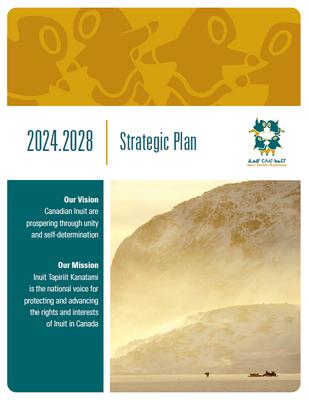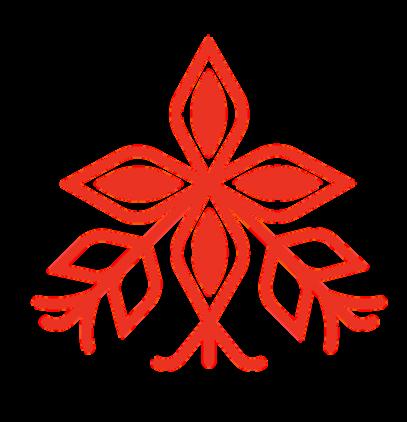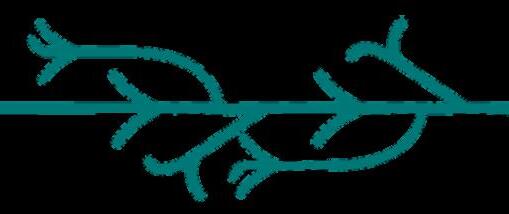






Whether you ’ re interested in poli (the drama, the intrigue!), looking ways to dismantle settler-colon hetero-patriarchy, or just confu about what politicians ACTUALLY all day, The Rundown is here for yo With each season, IYR’s Centre Indigenous Policy and Research bring you a new edition of T Rundown recapping everything y need to know about what’s going on Canadian policy when it comes Indigenous rights, community, a reconciliation.













> CANADIAN RECONCILIATION BAROMETER: In December 2023, researchers from across the country released the second annual Canadian Reconciliation Barometer. The reports presented findings from the nationwide survey, measuring public perception of reconciliation between Indigenous and nonIndigenous people. The researchers found that while awareness of the harms of residential schools has increased, progress in other key areas, like engagement, has been minimal. Read more here!
“90% of non-Indigenous respondents and 94% of Indigenous respondents had previously read or heard about Residential Schools, up from 65% and 87% in 2021.”
> JOINT ACTION CIRCLE: Indigenous leaders and the Manitoba RCMP have formed a Joint Action Circle aimed at tackling the ongoing violence against Indigenous women, girls, and 2SLGBTQ+ people. The Manitoba Métis Federation, Manitoba Keewatinowi Organization, Southern Chiefs’ Organization, Manitoba Inuit Association, and Treaty Relations Commission of Manitoba will be among the groups involved with the Joint Action Circle. This collaboration is part of a larger effort to implement the 231 Calls to Justice, which focuses on improving policing practices, including investigations, education, and the recruitment and retention of Indigenous officers.
“We anticipate the opportunity to work towards a common goal of improving relations for a more equitable, mutual, respectful, and trusting relationship between the RCMP and First Nations in Manitoba.
-Grand Chief Cathy Merrick


”
> NEW CBC/RADIO-CANADA NATIONAL INDIGENOUS STRATEGY: On February 5, CBC/Radio-Canada announced its first-ever National Indigenous Strategy, Strengthening Relations, Walking Together. The strategy outli a three-year plan that seeks to incorporate Indigenous voices and representation, build relationships with Indigenous communities, and foster truth and reconciliation efforts.
YoucanreadCBC’snewIndigenous strategyhere;summariesofthe strategyarealsoavailableinCree,
> CANADIAN ASSOCIATION OF SOCIAL WO
Social Workers (CASW) updated their code of update, CASW included a new professional va Reconciliation. The newly added section featur and acknowledging Indigenous world views in social work practice.







> FOREVER CHEMICALS: In February, environmentalists, health officials, and scientists called for a federal ban on “forever chemicals” (PFAS) found in products like non-stick pans, cosmetics, and food packaging. Lucy Grey, Public Health Inuit Research Advisor, emphasized the serious impact of these chemicals on Inuit communities. The harmful effects of PFAS include risks to reproductive health and development and increased cancer risks, which are particularly severe in Northern populations. Advocates, including Grey, are urging Canada to ban PFAS to safeguard the health and the environment, especially in the Arctic, where these chemicals appear in wildlife, affecting traditional Inuit diets.
“
“Inuit children are born with PFAS already in their bodies. They accumulate in the body just from practicing their ancient lifestyle. The federal government has a fiduciary responsibility entrenched in the Constitution. It is duty-bound to protect the inherent rights of the Inuit. It has a responsibility to protect. The federal government has to regulate PFAS because they have a duty to protect us Inuit.”
-Lucy Grey
”


> 2024 Arctic Winter Games: The Arctic Winter Games took place between March 10 and 16 this year on the ancestral land of the Dena’ina’ and Ahtna Dene, drawing young Indigenous athletes like Kiawna Leas from the Ta’an Kwäch’än Council and Carson Nelson from the Bonaparte First Nation. Leas competed in the Dene Games, involving events such as finger pull and snowsnake, while Nelson participated in traditional high-jumping events. Excelling at the Arctic Games, Team Yukon finished second overall with the most medals won, followed closely behind by Team Alberta North and Team Northwest Territories, respectively.
“It’s not really about the competition...it’s a bonus if you get a medal, but it’s not what it’s all about. It’s about all the memories that you make.”
”
-Kiawna Leas


> INUIT TAPIRIIT KANATAMI RELEASES NEW STRATEGIC PLAN: In April, Inuit Tapiriit Kanatami (ITK) released its new strategic plan for 2024-2028. The new plan will serve as ITK’s mandate for the next four years is an important advocacy tool for Inuit peoples to convey their shared priorities. The plan highlights seven shared priorities for the coming years. These include:
1.
Strengthen Inuit unity, governance and selfdetermination
Improve access to education, health, and disabilities services 2. Improve Inuktut revitalization, maintenance, protection and promotion 3.
Support implementation of human rights in Inuit Nunangat 4. Advance Inuit self-determination over research 5. Help improve the safety and security of vulnerable Inuit populations and 6. Work to close the Inuit Nunangat infrastructure gap. 7.








> HEILTSUK NATION SUES FEDERAL GOVERNMENT: The Heiltsuk Nation of British Columbia has filed a lawsuit against the federal government, challenging a 2022 decision to ban commercial herring spawn-on-kelp fishing in their territory. The nation argues that the ban infringes on their constitutional rights and interferes with crucial cultural and economic practices. Despite years of co-management with the federal Fisheries Department, the Minister’s decision to close the fishery in 2022 has significantly impacted the Heiltsuk community. In addition, Heiltsuk Nation says that the 2022 closure has undermined reconciliation efforts on the part of the Canadian federal government.
““We
did not take the decision to commence legal action lightly...We have worked hard to build trust and collaboratively manage herring stocks in Heiltsuk Territory with DFO, however the unilateral decision to close our commercial SOK fishery seriously undermined those efforts and infringed our rights.”
-Chief Marilyn Slett
> YUKON FIRST NATIONS CLIMATE ACTION
FELLOWSHIP: In January, a group of First Nations leaders and youth embarked on a cultural exchange trip to New Zealand to stay with a Māori community. Members of Yukon First Nations Climate Action journeyed to expand upon their "Reconnection Vision," a climate action plan developed over recent years. Participants explained that they had a transformative experience; discussing climate change, learning from the rich ancestral knowledge of the Māori people, and getting to celebrate Waitangi Day, emphasizing the importance of connection to land and community.
“A lot of us are very passionate and moving forward and how we can implement change for our communities and for the Yukon as a whole ... We want to keep the conversation going. We don’t want the vision to just sit on a shelf.”
-Jen Mierau, Tr’ondëk Hwëch’in First Nation


”





>PROCLAIMING OUR ROOTS PROJECT: Over the last few years, the Proclaiming Our Roots project has documented the interconnected histories of Indigenous and African diasporic communities nationwide. Acknowledging over 400 years of African diasporic presence and traditions stemming from Indigenous and Black ancestries, the project explores the histories and cultures of these intertwined communities. Personal stories are centered to reshape our understanding of Black-Indigenous identity, community, and resistance across Turtle Island. You can learn more about the Proclaiming Our Roots project and explore personal stories the team has documented, here!
In February 2024, Dr. Ciann Wilson (Principal Investigator) and Prof. Ann Marie Beals (Story Sharer) of the Proclaiming Our Roots team penned a thought-provoking essay in Briarpatch magazine, exploring how fake claims of Indigenous ancestry affect Afro-Indigenous people and ties between Black and Indigenous communities.

Read the article here:



>ADELINE BIRD AND TASHA SPILLETT: This Black History Month, Afro-Indigenous authors Tasha Spillett and Adeline Bird sat down with CBC Indigenous to share their experiences with youth empowerment through storytelling. Spillett, with ties to Opaskwayak Cree Nation and Cumberland House Cree Nation, explained that she writes to educate others on the dignity, beauty, and brilliance of Afro-Indigenous communities. Meanwhile, Bird, an Afro-Anishinaabe filmmaker and author from Rolling River First Nation, spoke about her role as a role model for BIPOC youth hoping to break into creative fields. Both authors stressed the importance of telling stories that challenge stereotypes and celebrate the shared history of Indigenous and Black communities in Canada.
>AFRICENTRIC ALTERNATIVE SCHOOL: Since 2009, the Africentric Alternative School in Toronto, Ontario, has been embodying the spirit of Black History Month every day of the year. The school offers students from kindergarten to Grade 8 a chance to immerse in Black history and culture, learn about global Black achievements, and participate in African drumming, all through an Africentric curriculum. The school stands as a powerful inspiration, challenging the norm by making Black history and achievements its primary focus. By offering a supportive environment for Black youth to grow, the school embodies the spirit of Black History Month in its everyday practices.
“
“I get to learn about my heritage more and my background. The school makes me happy, really happy because I get to express my feelings more and talk about things that I don’t really talk about with other people.”
-Saléah Edwards, Grade 8 Student


”
> FEDERAL BUDGET 2024: On April 16, the federal government released its annual budget report. The budget was expected to address the rising cost of living and housing shortages, with added emphasis on expanding dental care and pharmacy coverage. Many Indigenous organizations and communities submitted pre-budget briefs outlining their priorities and recommendations for this year ’ s budget, including the Assembly of First Nations (AFN), Métis National Council, Inuit Tapiirit Kanatami, and the Ontario Federation of Indigenous Friendship Centres. These submissions' recommendations included funding for incommunity infrastructure, further implementation of Jordan’s Principle, food security, and Indigenous-led conservation initiatives. We published a breakdown of the budget that you can check out to learn more!






> MÉTIS SELF-GOVERNMENT ACT: Last summer, Canada introduced Bill C-53 or the Recognition of Certain Métis Governments in Alberta, Ontario and Saskatchewan and Métis Self-Government Act. The bill seeks to officially recognize self-government agreements that the Métis Nation of Alberta, the Métis Nation of Saskatchewan, and the Métis Nation of Ontario each signed with the federal government. In February 2024, the bill was adopted by the Standing Committee on Northern and Indigenous Affairs.
However, in April, Métis Nation-Saskatchewan pulled its support for the bill because of its one-size-fits-all approach that failed to account for the specific circumstances of MN-S. In addition, MN-S President Glen McCallum pointed out that the agreement's passage was delayed by legal and political pressures stemming from unresolved issues in Alberta and Ontario, which the federal government has not yet addressed.
“
“The path to self-government continues to create a meaningful and concrete future for our citizens and the Métis Homeland. MN–S has decided to make creating a comprehensive Treaty, alongside the Canadian government, our top priority.”
-Glen McCallum, MN-S President
”



> NUNAVUT DEVOLUTION AGREEMENT: In January, Nunavut signed a devolution agreement with the federal government that is set to take effect in 2027. The historic land transfer will give Nunavut control over its public lands and resources. Devolution is important for Nunavut because it allows for local land use and resource extraction decision-making. Nunavummiut will be able to influence the pace of development, collect royalties from resource extraction, and uphold environmental stewardship. The transition, still several years away, will include major preparations. You can access the entire Nunavut Lands and Resources Devolution Agreement to learn more.
A devolution agreement refers to the process of transferring control of certain powers (e.g., land management) from a central government to a local or regional one.
In 2003, Yukon signed its devolution agreement with Canada, followed by the Northwest Territories in 2014. Nunavut’s devolution process began in 2014 and involved several years of negotiations before an agreement could be reached.
In 2019, Nunavut signed a non-binding agreement (i.e., not legally enforceable) with the federal government, triggering a multi-year process for the parties to agree on the transfer of powers.



> CRIMINALIZING FORCED STERILIZATION: In February 2024, members of the Survivors Circle for Reproductive Justice, an organization for Indigenous survivors of forced sterilization, shared their testimonies before the Senate Standing Committee on Legal and Constitutional Affairs. At present, the Committee is studying Bill S-250 (An Act to amend the Criminal Code - Sterilization Procedures), which aims to put an end to forced or coerced sterilization. The proposed bill calls for amendments to Canada’s Criminal Code that would make this a criminal offence. Bill S-250 defines what true consent involves, including ensuring that patients can freely withdraw consent at any point and verifying that requests for procedures are not made under pressure. Having passed two readings in the Senate, the next step would be consideration before the House of Commons. Nicole Rabbit of the Blood Tribe in Alberta shared her family’s story with the Senate Committee in February 2024. Her story, along with other survivors' testimonies, have been shared in a Senate Committee report on forced and coerced sterilization in Canada.






> FIRST NATIONS CLEAN WATER ACT: First Nations leaders from Manitoba and Alberta are urging the federal government to change the proposed clean water bill, Bill C-61, due to a lack of support and consultation. They argue that the bill heavily burdens First Nations communities without addressing the root causes of water crises, such as underfunding and legal restrictions. Chief Rupert Meneen of the Tallcree Tribal Government and Grand Chief C
Bill C-61 (or the First Nations Clean Water Act), introduced in late 2023, seeks to affirm First Nations' inherent rights to self-governance over water resources (i.e., drinking water, source water, wastewater, and related infrastructure) on First Nations lands.
The bill also sets minimum standards for water quality and quantity on First Nations lands. The bill is currently in its second reading in the House of Commons, with multiple steps left before it can become law.




> I SANG YOU DOWN FROM THE STARS: “I Sang You Down from the Stars” is a lyrical book written by Tasha Spillett about the bond between a mother and her child. Drawing from her cultural heritage, Spillett uses Indigenous creation stories and traditional teachings to celebrate the universal nature of a mother’s love.
> BE UNAPOLOGETICALLY YOU: “Be Unapologetically You: A Self Love Guide for Women of Colour” is a book that emphasizes the importance of self-love as a courageous, deliberate act of defiance against negative self-talk. Authored by Adeline Bird, it argues that embracing self-love allows individuals to share their unique gifts with the world, asserting that loving oneself is essential for enabling others to do the same.
>THE BLACK PRAIRIE ARCHIVES: “The Black Prairie Archives: An Anthology” is a collection of work edited by Karina Vernon that spotlights Black Canadian experiences in the Prairies from the nineteenth century to the present. The book contains a diverse array of writings, poems, and letters that enrich our understanding of the often-overlooked histories of Black communities in the Prairies.
> IN THE UPPER COUNTRY: “In the Upper Country,” by Kai Thomas, is a novel that explores the intertwined histories of Black refugees and First Nations communities in mid-nineteenthcentury Ontario. Told through a young Black journalist’s exchange of stories with a woman who escaped through the Underground Railroad, the book sheds light on the shared experiences of both communities.



> 1834 TALKS: In a recent episode of the podcast “1834 Talks: Black and Indigenous Allyship,” Jordan Gray, the Chair of IYR’s Board of Directors, sat down with the 1834 Global team to discuss Black and Indigenous allyship and his journey in public policy. Gray, of Mi’kmaq and Trinidadian ancestry, is also the acting National Manager for reserve housing at Indigenous Services Canada and a Curriculum Specialist at the 1834 Foundation.
> STRONG & FREE: The “Strong & Free Podcast” delves into Black Canadian history, sharing stories from the earliest Black settlers to more recently arrived communities. The podcast centres the Black Canadian experience by highlighting ways the community is thriving and sharing insight into the important contributions that Black communities have made to this country.
> BLACK LIFE UNTOLD STORIES: “Black Life Untold Stories” is an 8-part documentary series that explores the unique experiences, challenges, and triumphs of Black Canadians. It brings to the forefront both personal and historical narratives that have remained largely untold, covering a wide range of topics from cultural achievements to social justice issues.







